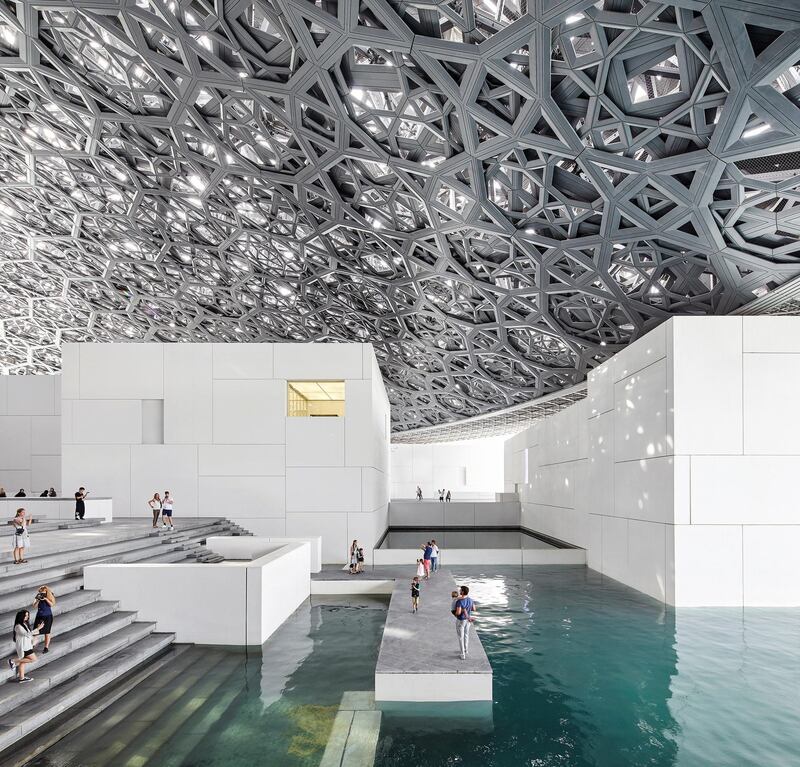Louvre Abu Dhabi has been held up as a pioneering platform for international cultural exchanges developing relations between people and nations, Noura Al Kaabi told the Paris Peace Forum on Tuesday.
The Minister for Culture and Knowledge Development was a keynote speaker on a panel to examine art's role in fostering dialogue.
Ms Al Kaabi said Louvre Abu Dhabi was part of official efforts to challenge established perspectives.
“We are trying to change perceptions so that art is seen as for everyone in Abu Dhabi,” she said.
“We have the Louvre museum and it is not just for a certain section of individuals who are capable of collecting art.”
Also on the panel was Franck Riester, the French Minister of Culture, who said he had been instructed by French President Emmanuel Macron to make the vast stock of French art accessible to the greatest number of people.
“We have to reach out to other people and that is what we did with Louvre Abu Dhabi," Mr Riester said.
"We are trying to share our heritage with other people in the world thanks to our partnership with the UAE.”
Ms Al Kaabi told the panel that the street leading to Louvre Abu Dhabi had been named to honour former French president Jacques Chirac.
Mr Riester said the recently deceased president had a deep historical understanding of the region’s importance.
“Jacques Chirac said there is no hierarchy between cultures, just as there is no hierarchy between people,” he said.
“The Arabian Peninsula has been at the crossroads for different cultures for millennia and has that role to play today.”
Mr Riester said he would establish a residency programme for French artists to go abroad, and for those from conflict areas.
Thomas Kaplan, a businessman who has sought to exhibit the Leiden Collection around the world, spoke of using art as a tool to offset tension.
Mr Kaplan said this was important at times when people were building walls or, in the case of ISIS and other extremist groups, destroying ancient heritage in places such as Iraq's Mosul and Syria's Palmyra.
He said the bravery of displaying all historic forms of art was an act of greatness and singled out the role of Sheikh Mohamed bin Zayed, Crown Prince of Abu Dhabi and Deputy Supreme Commander of the UAE Armed Forces, in founding Louvre Abu Dhabi.
“What Louvre Abu Dhabi represents is potentially the most important development of our times,” Mr Kaplan said.
He said the positive effects went beyond the UAE to Saudi Arabia and beyond. In particular, it countered the destructive forces of groups such as ISIS.
“It is the riposte to the savagery of Mosul, the riposte to Palmyra," Mr Kaplan said. "The bravery of this is to do it at a time when it’s easier to keep your head down.”
Ms Al Kaabi said the legacy of Pope Francis's visit to Abu Dhabi in February was to show the basic values of humanity were connected to religion, which should not be a tool of division.
She said the UAE was set to restore Al Nuri mosque in Mosul and the city's churches. Reversing the damage wrought by ISIS to the city's skyline was very important.
“Connectivity is so important,” Ms Al Kaabi said. “Any culture that crosses borders into towns and villages is enriching.”






